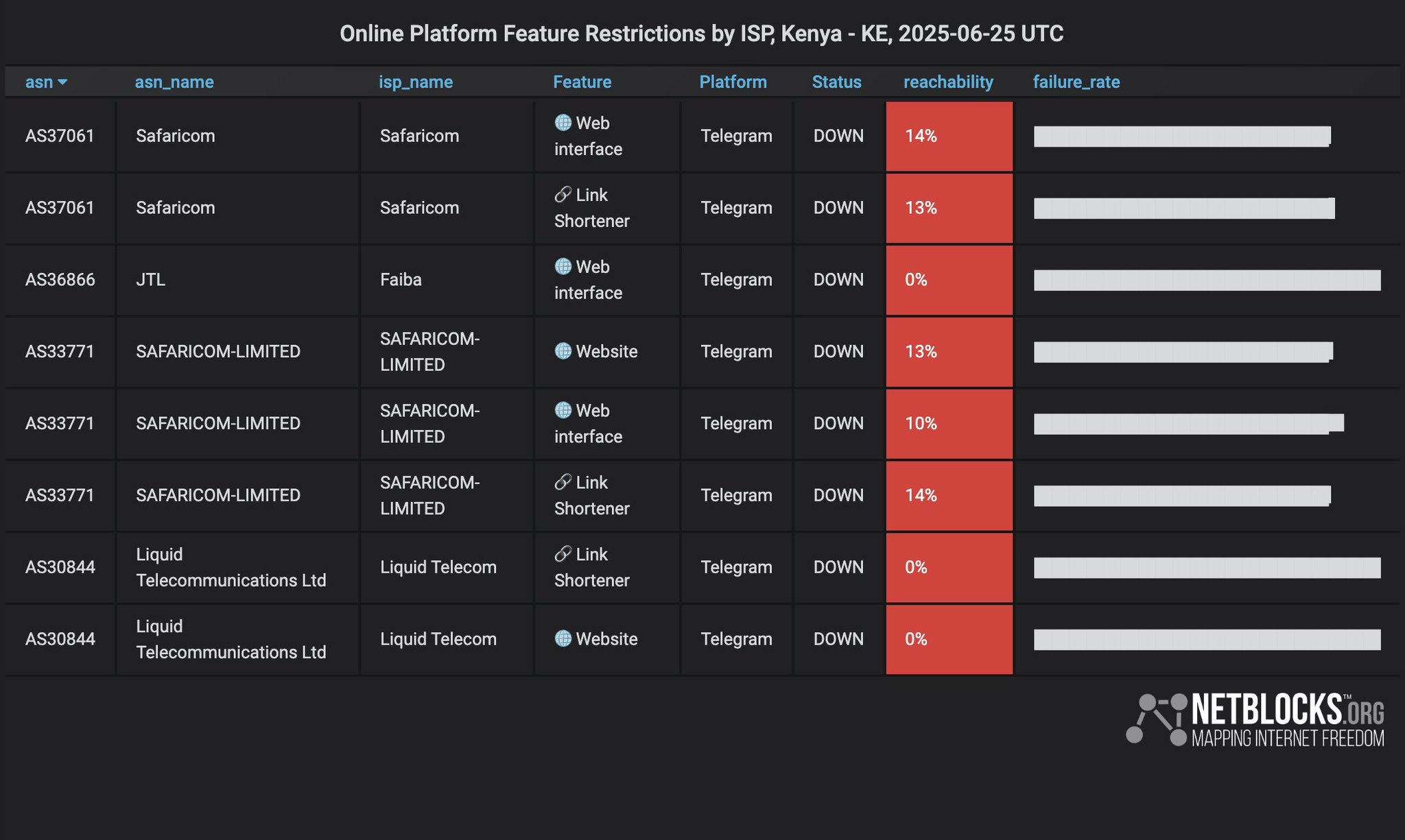Telegram, one of Kenya’s most widely used messaging apps, has been restricted amid growing anti-government protests across the country. The development was confirmed by NetBlocks, a global watchdog that monitors internet disruptions in real time.
According to NetBlocks, the restriction on Telegram took effect on Wednesday, June 25, just as massive protests broke out in Nairobi and other major towns, including Mombasa and Kisii. The protests, largely driven by Gen Z youth, were organized to commemorate those who lost their lives during similar demonstrations against the Finance Bill last year.
“Live data shows that access to Telegram is currently limited across major Internet Service Providers in Kenya,” NetBlocks said in a statement, raising alarms about the possibility of a broader internet shutdown.
The move to limit Telegram access appears to be part of a broader effort by authorities to control the flow of information during the unrest. It came just shortly after the Communications Authority of Kenya (CAK) issued a directive banning all TV and radio stations from broadcasting the protests live.
The demonstrations, which have paralyzed parts of the Central Business District in Nairobi, have escalated into confrontations between police and protesters. On the ground, there are reports of injuries on both sides, and some eyewitnesses claim there have been fatalities among the protesters.
The restriction of Telegram a critical tool for organizing and sharing updates has sparked fears among activists and digital rights groups that the government could be preparing for a full internet blackout, a tactic increasingly used by regimes facing mass dissent.




